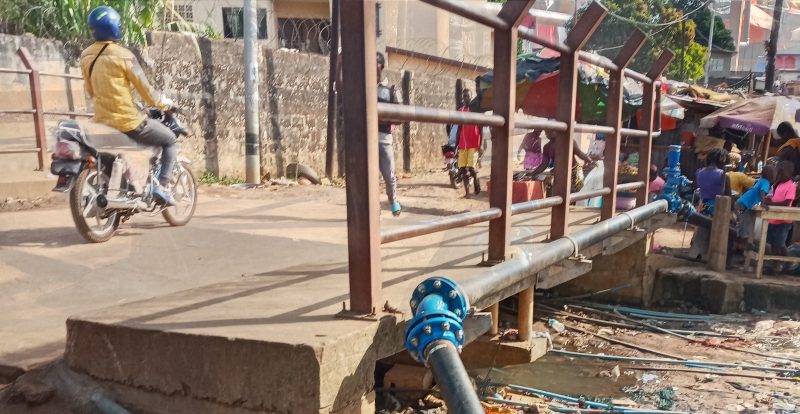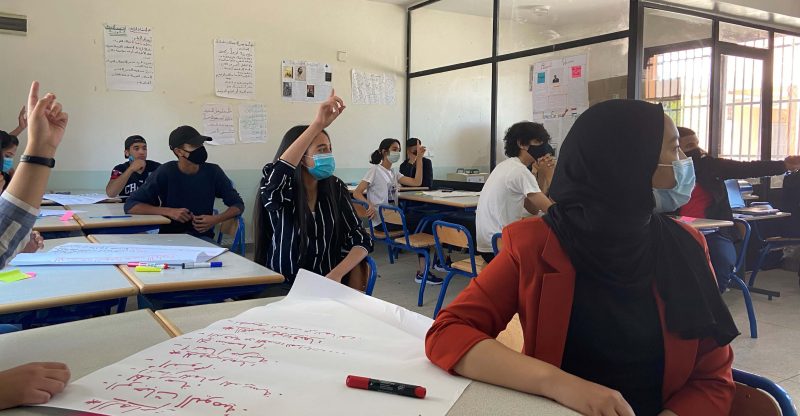MCC has a strong track-record at the frontier of aid effectiveness. With an evidence-based approach, MCC delivers impact using a comprehensive results framework to report on outputs and outcomes. These results frameworks have revealed that maximizing impact sometimes requires funding to be tied directly to project results. This approach is called Results-based Financing (RBF).
In contrast to traditional activity-based funding, which provides funding for inputs, RBF ties a portion of funding to achieving the desired results. This can help improve outcomes while providing greater accountability for taxpayers’ dollars since at least a portion of funds are only disbursed when the goals are achieved. It also provides additional flexibility and local ownership to MCC’s partners by allowing them to adapt activities as needed to reach the desired outcomes. Through RBF, MCC promotes a focus on delivering development results for the people who benefit from our investments. Funding is released only as objectives are met and there are outcomes that truly improve individual’s lives.
What is MCC Doing to Strengthen the Use of RBF?
Since 2015, MCC has piloted the use of RBF to improve water and electricity services in Sierra Leone and enhance workforce development in Morocco.
Through these experiences MCC has learned that RBF can be a powerful tool, but details and context matter. For example, certain problems are more responsive to RBF and key conditions may be necessary for RBF to have an improved impact over traditional input-oriented funding. Now, MCC is developing a set of tools, guidance, and policies to facilitate RBF’s effective use while simultaneously designing new RBF approaches into more Compact and Threshold programs. This includes a new RBF initiative in the Senegal Power Compact to reduce the cost of and improve the quality and reliability of electricity. Additionally, an RBF activity is included in the proposed second compact with Lesotho to improve the oversight of essential health service delivery. Together, working closely with MCC’s partners, the agency will continue to refine the RBF approach to maximize the impact, reduce poverty and advance economic growth.

MCA-Sierra Leone
New pipes like the one above were installed as part of the District Metering Area pilot in the Aberdeen neighborhood of Freetown. The pipes replaced those that were old and leaking, eliminating waste and ensuring more water goes to households.
MCC’s recently completed Sierra Leone Threshold Program worked to deliver water and electricity services more effectively in the capital city of Freetown. The ability of public utilities to deliver water and electricity are widely recognized as critical for sustained economic growth among low- and middle-income countries. But in Freetown, fast-growing demand for the utilities had outpaced the ability of the providers, preventing system updates or even updating service maps. To tackle the challenge of driving reform at the water and electricity utilities as well as the regulator, MCC chose to test RBF as a way to encourage the utilities to provide better services to the people of Freetown. The $5 million program provided payments conditional on the achievement of pre-defined results to incentivize performance improvements in planning, coordination, and operational and financial efficiency.
One of the participating utilities, the Guma Valley Water Company (GVWC), which manages most of Freetown’s water supply, historically suffered from low collections rates, low employee morale, a loss of water supply due to leakages and poor infrastructure maintenance. GVWC management felt that they were stuck in a ‘vicious circle of underperformance’. The RBF program gave GVWC the opportunity to define priority areas for improvement that aligned with their long-term goals and gave them the flexibility to achieve results based on their understanding of what would work best. For example, GVWC wanted to increase collection rates, so they designed and implemented new policies, increasing revenue collections by 33% from the pre-RBF baseline. In total, GVWC was able to earn 114% of their targeted collection payments. Other areas of significant improvement for GVWC included repairs of critical leaks, submain installations, and stronger data management and reporting to the regulator.
The RBF activity with the electricity utility—Electricity Distribution and Supply Authority (EDSA)—while less successful, having met only one of the five metrics set for improved performance, still saw improvements over time. MCC’s experience with EDSA provides valuable lessons for future RBF projects. Based on interviews with stakeholders and an assessment of lessons learned, MCC has identified a few factors that could explain why EDSA did not perform as well on the RBF activity. These include funding size, management support, and readiness. EDSA turns over more than $80 million in energy generation deals annually, making MCC’s $1 million incentive program relatively small. The management team at EDSA was also focused on larger investments involving a management contractor that was supported by the World Bank, which limited their attention to the RBF activity. Additionally, changes to Sierra Leone’s energy sector strategy made after the design of the RBF program point to questions of timing and readiness for EDSA’s participation in the program. In response to this experience, MCC has incorporated a readiness assessment into its RBF tools that will help to determine whether RBF is the appropriate tool to incentivize change for future programs. Read additional details on the results and lessons of RBF in the water sector and the electricity sector in Sierra Leone.

Grants like the MCC-funded Education for Employability Partnership Fund in Morocco, which encourages innovative projects focused on school life and pedagogical approaches to improve secondary education, play an important role in MCC’s work to reduce poverty through economic growth.
MCC’s Employability and Land Compact with Morocco is working to reduce high levels of inequality by providing education and job training support. In Morocco, high youth unemployment and the lowest rate of women’s labor force participation in the world are key elements preventing broad-based and inclusive economic growth. Under the Employability Project, MCC is using RBF to incentivize job placement agencies to find employment for women and at-risk youth who lack formal education. This project, called the RBF Jobs Fund, is working with eight job placement agencies that support these groups.
The agencies receive payment based on the number of women and youth that complete short-term training programs and go on to get and retain formal sector jobs for at least six months. As of the end of 2021, 4,431 participants have completed a job-related training course, 1,497 have been placed into training programs, and 367 have retained their jobs for six months. As the Morocco compact program continues, MCC is providing technical assistance to the Government of Morocco to build their capacity for using results-based financing mechanisms in the employment sector. The experience of the RBF Jobs Fund will inform changes to a larger, national employment program for youth. Already, other government agencies have requested MCC support to further integrate RBF into their programming, with one institution, the National Human Development Initiative, even replicating the program with a similar design and many of the same partner agencies.

